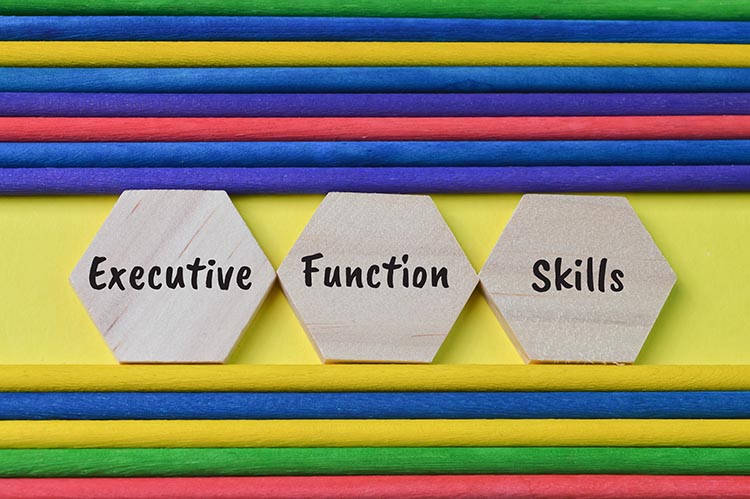
The Importance of Executive Function Skills
Executive Function skills are skills that help you operate successfully in your everyday life. Without these, it can be difficult to get to class, complete coursework, and find the time to keep every part of your life running smoothly.
When people feel disorganized or struggle emotionally, they may not realize that there is a set of skills connected to these that can be improved with practice. Executive function is housed in the prefrontal cortex of the brain, a part that does not fully develop for most people until our mid-twenties.
So, what are Executive Function Skills?
Focus and Attention-allows us to follow instructions, follow conversations, remember what we are supposed to do next. This is what allows us to see projects like reports and projects through to completion. Physical movements and stress management help keep our short-term memory sharp.
Planning and Organization-this is about time management, keeping our homes and workplaces clean and organized, and following through on plans that we have made. Establishing a command center to keep your essentials organized is a great strategy in this area.
Cognitive flexibility-being able to transition from one thing to another is controlled by this skill. It is what allows us to multi-task, appreciate a new experience, and adapt and pivot to something different. Getting yourself out of a rut can help your brain be more open to future changes.
Emotional Regulation-we can be successful in our personal and professional relationships if we have emotional regulation. We can filter out saying things that might hurt someone else, avoid outbursts, and learn emotional resilience. Negative emotions will crop up for everyone, but this skill will help you manage them, so they are not as overwhelming.
Impulse Control-this skill helps us look before we leap. It allows us to put stimulating things aside (Facebook or Instagram) and focus on what we need to do. Impulse Control also helps us respect rules and boundaries, while supporting us in taking calculated risks. Impulse Control is a hallmark feature of adult behavior.
Our brains are amazing organs that can change throughout our lives, a practice called Neuroplasticity. By making small, repeated efforts over time to improve our Executive Function Skills, we can see big results. And because the five core areas are interrelated, making improvements in one area can boost skills in other areas.
Where can I work on my Executive Function Skills at OCTC?
- Teaching and Learning Center (TLC)-faculty and staff there have tools to help especially with focus and attention, planning and organization, and cognitive flexibility.
- • Counseling Center-staff there can help you especially with emotional regulation and impulse control.
Want to learn about ways to improve your executive functioning? I recommend reading Brain Hacks by Dr. Lara Honos-Webb and we have a copy in the OCTC library on the main campus. The book provides actionable strategies to help people strengthen all five areas.

Dr. Shane Armstrong is the new Dean of Student Success where she focuses on student engagement, retention, and the first year experience. She holds a bachelor's degree in English and a master's degree in English Literature from the University of Louisville, and a doctorate from California Lutheran University.
